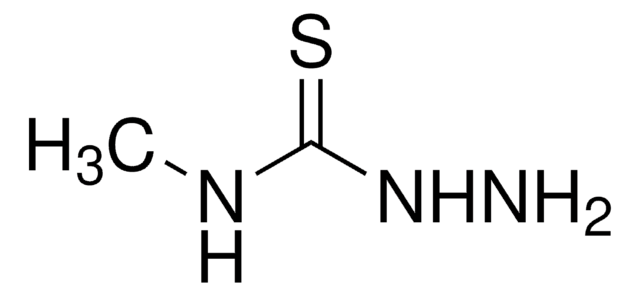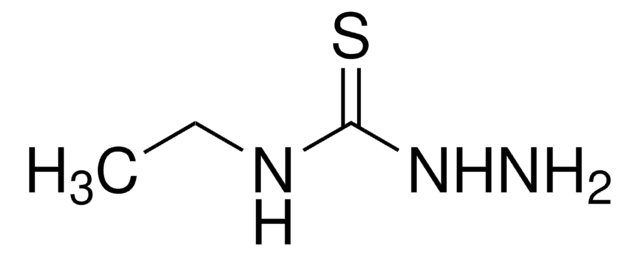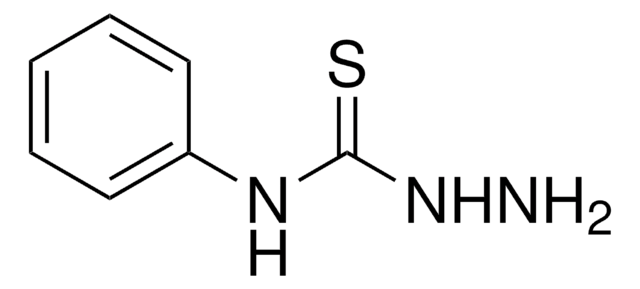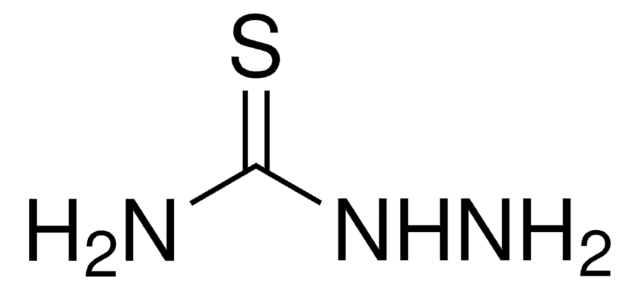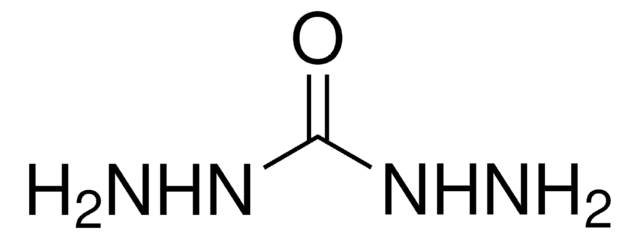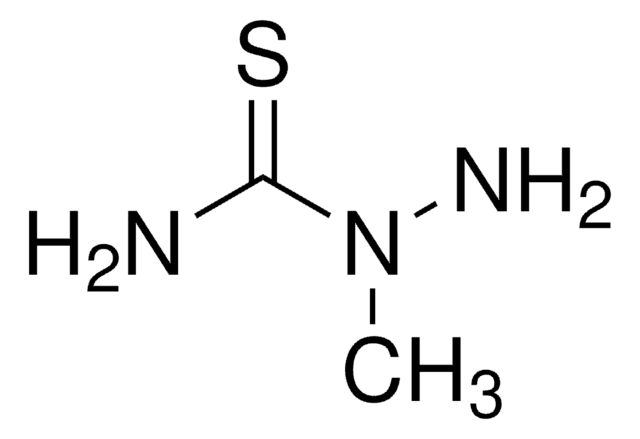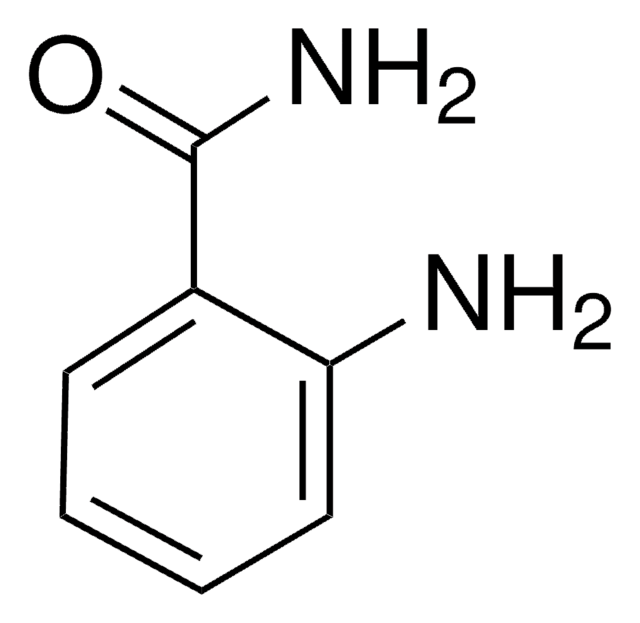About This Item
Recommended Products
Quality Level
Assay
98%
mp
153 °C (dec.) (lit.)
functional group
amine
hydrazine
thiourea
storage temp.
2-8°C
SMILES string
CN(C)C(=S)NN
InChI
1S/C3H9N3S/c1-6(2)3(7)5-4/h4H2,1-2H3,(H,5,7)
InChI key
FCPHVJQWZFNNKD-UHFFFAOYSA-N
General description
Application
Signal Word
Warning
Hazard Statements
Precautionary Statements
Hazard Classifications
Acute Tox. 4 Oral
Storage Class Code
11 - Combustible Solids
WGK
WGK 3
Flash Point(F)
Not applicable
Flash Point(C)
Not applicable
Regulatory Listings
Regulatory Listings are mainly provided for chemical products. Only limited information can be provided here for non-chemical products. No entry means none of the components are listed. It is the user’s obligation to ensure the safe and legal use of the product.
JAN Code
357707-1G:
357707-5G:
357707-BULK:
357707-VAR:
Choose from one of the most recent versions:
Already Own This Product?
Find documentation for the products that you have recently purchased in the Document Library.
Our team of scientists has experience in all areas of research including Life Science, Material Science, Chemical Synthesis, Chromatography, Analytical and many others.
Contact Technical Service